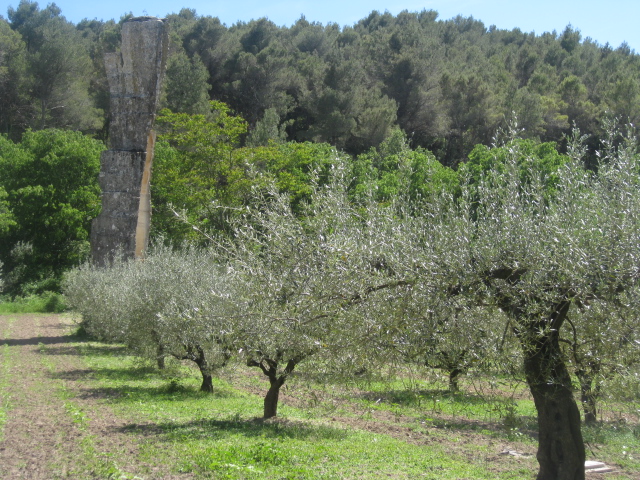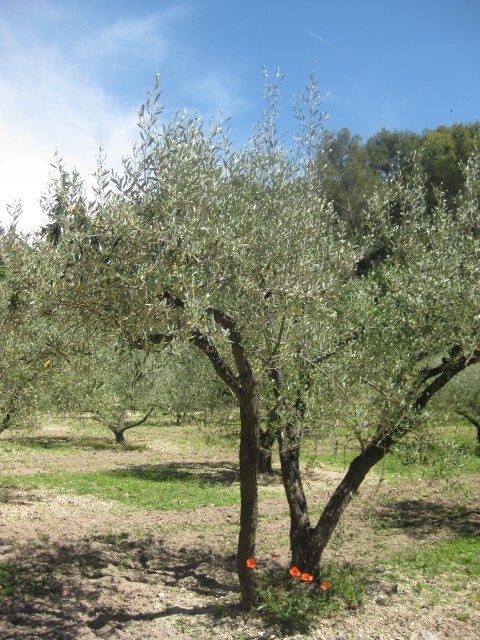Enjoying The Mediterranean Diet In Your Own Kitchen
Posted by Jennifer Thornton on 5th Apr 2024

Surely you have heard of the Mediterranean Diet, which evokes images of white-washed Greek islands, turquoise seas, and 90+ year-old men and women breakfasting on olives and olive oil. The Mediterranean Diet is composed primarily of fruits, vegetables, pulses (dry peas, beans, lentils and chick peas), seafood, sheep and goat’s milk and, best of all, olive oil. Olive oil is the main source of fat in the Med Diet. While this diet is gaining high popularity in America, the Mediterranean Diet is not just another diet, but is really a lifestyle. Having lived several years in Provence, I can attest that olive oil is certainly not a fad that became popular in the last 20 years. Olive oil is a way of life and culture which dates back to the beginning. The Med Diet is the way of life which has flourished because of its surroundings. Like all cultural diets, the Med Diet is a natural result of the environment, in which the climate allows for a bountiful year round supply of fresh fruits and vegetables, as well as ideal for olive trees, and is most suitable for goats and sheep, which make up the majority of meat and dairy. Access to the bountiful Mediterranean Sea supplies copious amounts of fresh seafood. It is a way of life that has long been encouraged by Hippocratic doctors who promote the ever wise proverb, “Let food be thy medicine and medicine be thy food.”

The belief of using food as medicine has sparked the Mediterranean Diet to be promoted throughout the world. The Med Diet has innumerable health benefits, largely due in part to the emphasis on extra virgin olive oil. While it may be difficult to follow all aspects of the Med Diet, for example, in a land-locked cattle country, incorporating more plant based foods and quality 100% Extra Virgin Olive Oil can easily be accomplished and provide many benefits.
Studies show that the Med Diet can significantly reduce cardiac diseases, from coronary artery disease, hypertension, high cholesterol and more. It protects against strokes and contributes to brain health. Fat is essential for brain health and the healthy omega 9’s and other components of olive oil can prevent Alzheimer’s and improve cognitive function. Olive oil stimulates the release of osteocalcin for bone health. It also promotes healthy gut flora, which is linked to many different diseases from head to toe. Its antioxidant properties are anti-aging. It also reduces the risk of cancers, including invasive breast cancer. Consumed during pregnancy, olive oil contributes to fetal health. With its positive benefits for prevention and treatment of chronic conditions, it is clear that the Mediterranean Diet offers strong potential for increased health and longevity.
If relocating to the Mediterranean coast is not an option, there are many practical and easy ways to integrate these principles no matter where you live. Start off with 100% Extra Virgin Olive Oil. You may not have known this, but olive oil contains 450 aromatic molecules and is capable of imparting a tantalizing variety of aromas. Pulses, which include dried beans, peas, and lentils are a staple of the Med Diet and are rich in vitamins and minerals. They pair magnificently with EVOO. This recipe for EVOO and White Bean Puree is simply delicious made with 100% EVOO.
You can also find a variety of salad and vegetable recipes here using olive oil and many different vinegars. One of my favorite Med Diet recipes is for a flavorful Goat Cheese and Garlic Spread. If you have access to quality seafood, I would encourage you to check out these seafood recipes.
Remember simple and traditional is key to the Med Diet. Quality ingredients, such as EVOO, stand out for their flavor profiles and do not need to be over manipulated in the kitchen. This allows for more time to enjoy your culinary creation!
